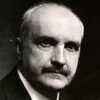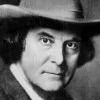The wise man would rather see men needing him than thanking him.
[El sagaz más quiere necessitados de sí que agradecidos.]
Baltasar Gracián y Morales (1601-1658) Spanish Jesuit priest, writer, philosopher
The Art of Worldly Wisdom [Oráculo Manual y Arte de Prudencia], § 5 (1647) [tr. Jacobs (1892)]
(Source)
(Source (Spanish)). Alternate translations:A Man of Parts had rather meet with those who depend upon him, than that are thankfull to him.
[Flesher ed. (1685)]He who knows, desires more that man shall need him than thank him.
[tr. Fischer (1937)]He who is truly shrewd would rather have people need him than thank him.
[tr. Maurer (1992)]
Quotations about:
essential
Note not all quotations have been tagged, so Search may find additional quotes on this topic.
Man helps himself by larger generalizations. The lesson of life is practically to generalize; to believe what the years and the centuries say, against the hours; to resist the usurpation of particulars; to penetrate to their catholic sense. Things seem to say one thing, and say the reverse. The appearance is immoral; the result is moral.
Ralph Waldo Emerson (1803-1882) American essayist, lecturer, poet
“Montaigne; or, The Skeptic,” Representative Men, Lecture 4 (1850)
(Source)
To condemn spontaneous and delightful occupations because they are useless for self-preservation shows an uncritical prizing of life regardless of its contents.
George Santayana (1863-1952) Spanish-American poet and philosopher [Jorge Agustín Nicolás Ruíz de Santayana y Borrás]
The Sense of Beauty, Part 1 “The Nature of Beauty,” sec. 4 “Work and Play” (1896)
(Source)
The graveyards are full of people the world could not do without.
Elbert Hubbard (1856-1915) American writer, businessman, philosopher
“The Philistine” (May 1907)
(Source)
Sometimes misquoted as:Also attributed to Charles DeGaulle, Georges Clemenceau, and many others. More discussion: The Graveyards Are Full of Indispensable Men – Quote Investigator.
- "The graveyards are full of indispensable men"
- "The cemeteries are full of indispensable men."
- "The cemeteries are filled with people who thought the world could not get along without them."




